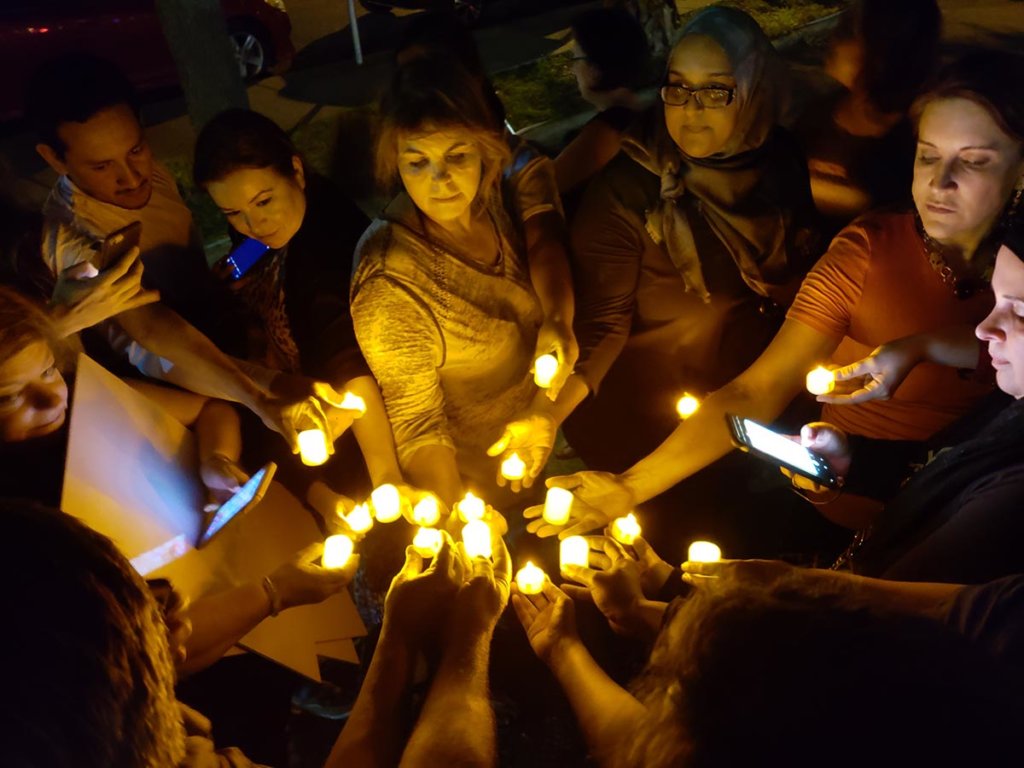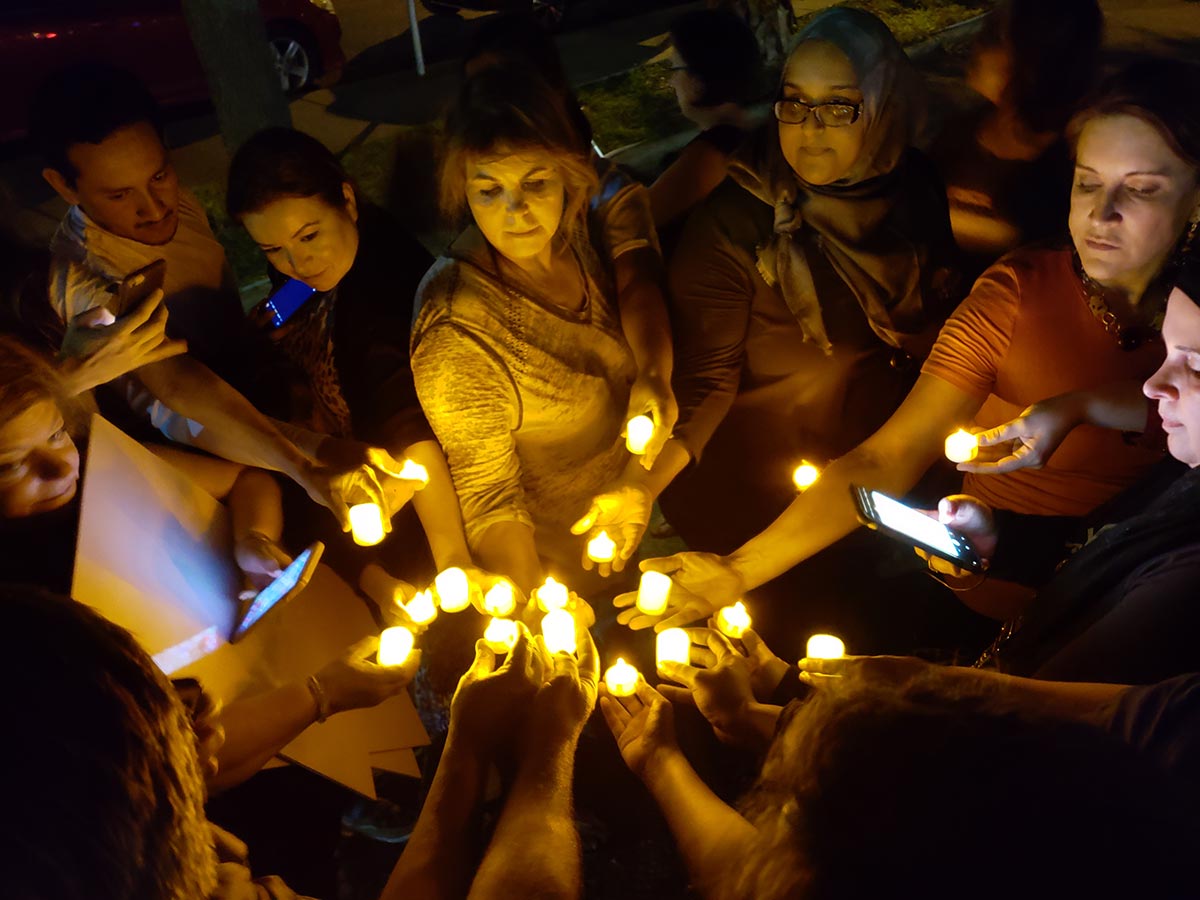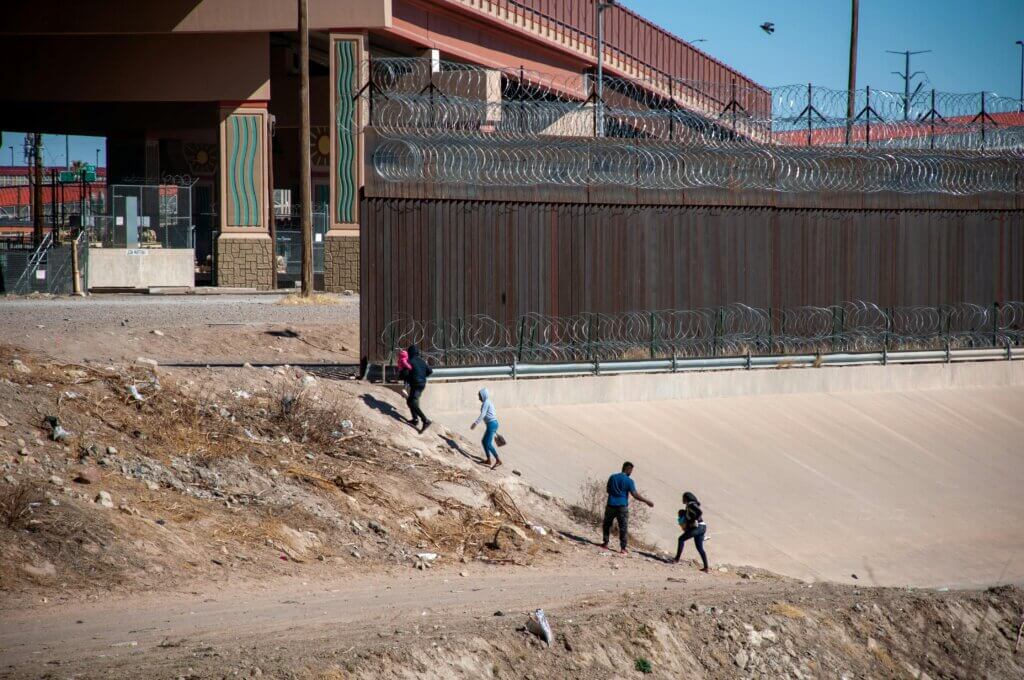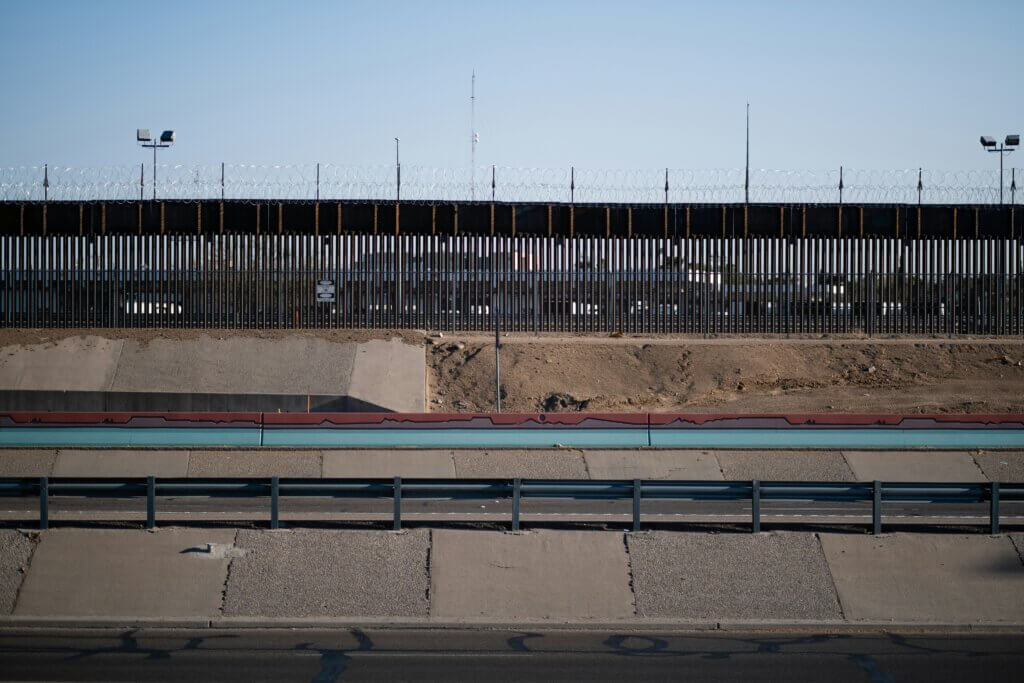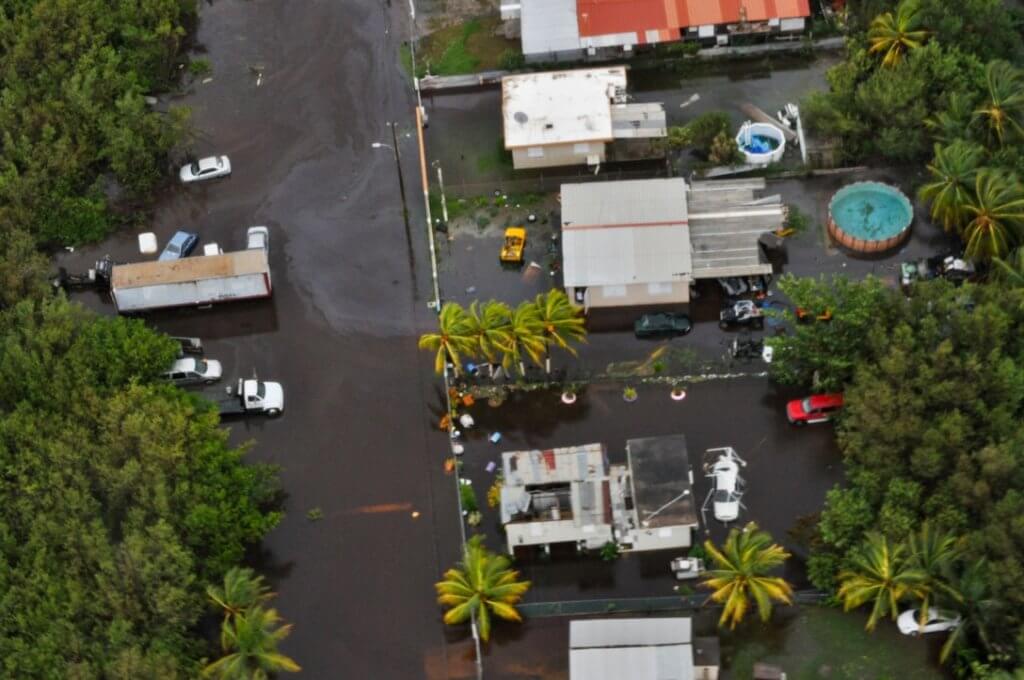This UnidosUS Affiliate is helping asylum-seekers at the border with justice and heart
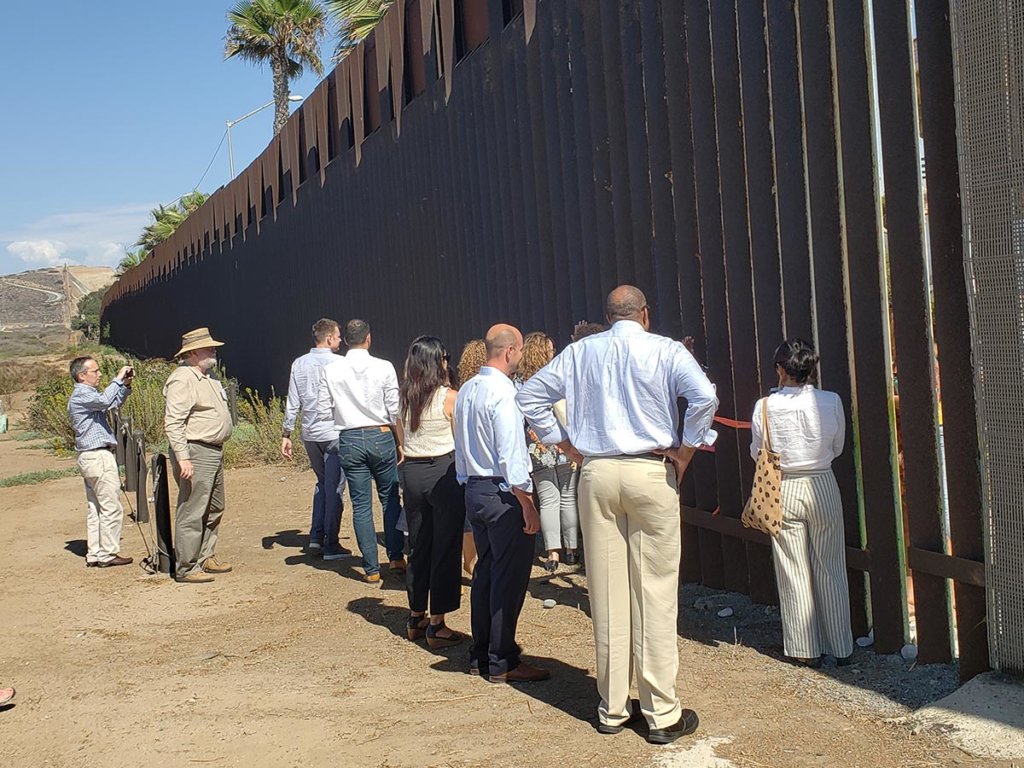
Post by CARECEN and UnidosUS communications staff
In October 2018, the international media became fascinated by the news that a group of Central American migrants, originating in Honduras with others joining from El Salvador, Guatemala, and Nicaragua, deemed the migrant caravan, was headed north through Mexico on their way to the United States. Since then, the situation at the U.S.-Mexico border has been a mainstay in daily news from the Trump administration’s decision to send military troops to Texas and California to counter the caravan in November of 2018, to Stephen Colbert’s recent viral caravan dance, to reports this month about a new/second migrant caravan.
With a mix of facts and misinformation presented about the reasons for the asylum-seekers’ journey, there is a void of discussion about possible solutions (especially when the impasse on the border wall debate led to the longest government shutdown in history), including the services that need to be provided to migrants seeking asylum and the foreign policy solutions in the sending countries.
One of our Washington DC Affiliates, Central American Resource Center (CARECEN), was fast to respond to the needs of the asylum-seekers at the U.S.-Mexico border and in Mexico City. On two occasions, Executive Director Abel Nuñez traveled to the border.
Read on to find out more about their important work.
During the first delegation, organized by the YWCA, he visited the Humanitarian Respite Center run by Sister Norma Pimentel at the Catholic Charities of the Rio Grande Valley in South Texas. The second delegation, organized by Hispanics in Philanthropy, focused on the U.S.-Mexico border along San Diego.
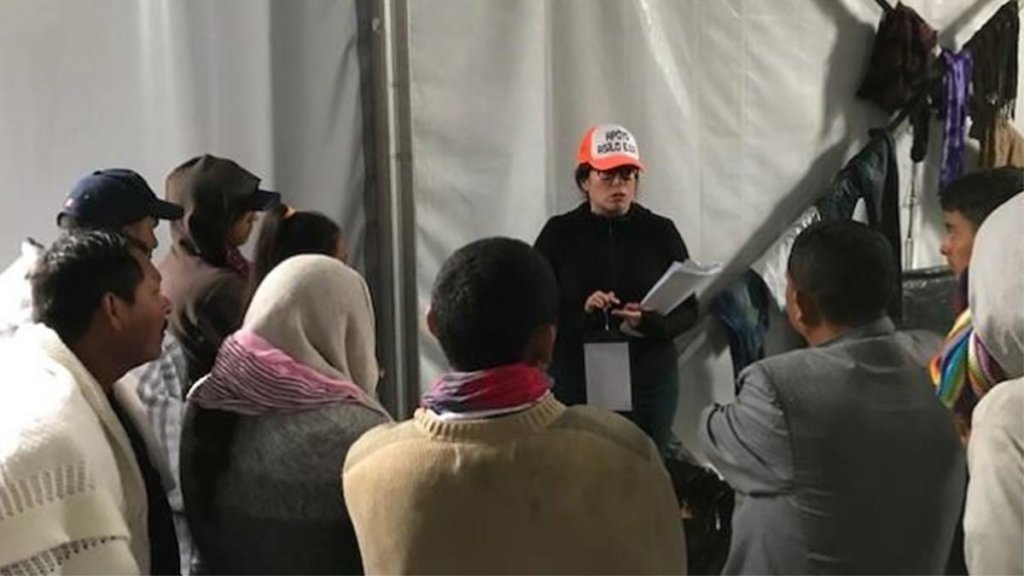
The goal of both delegations was to assess the needs of children separated from their parents and the conditions faced by immigrants seeking refuge, who are primarily from Central America. In addition, CARECEN’s legal staff traveled to the border on three legal delegations, one in Nogales, Arizona, as part of the CLINIC (Catholic Legal Immigration Network, Inc.) Convening and two to Port Isabel Detention Center in Los Fresnos, Texas, with the American Bar Association’s ProBAR as well as an international delegation to Mexico City, organized by Alianza Americas and IMUMI (Instituto para las mujeres en la migración).
In mid-November, CARECEN’s Legal Director M. Lucero Ortiz, Esq. traveled to Mexico City and led presentations on the asylum process in the United States to Central American migrants. She previously served on the board of another UnidosUS Affiliate, Mary’s Center and was UnidosUS’s keynote speaker for the 2018 CASA Youth Summit, and has a long commitment to immigrants’ rights.
“In 2018, CARECEN worked with our local, national, and transnational partners to support migrants and asylum-seekers. CARECEN staff participated in multiple delegations to the U.S.-Mexico border in Arizona, Texas, and California to address family separation (the zero-tolerance policy) and one delegation to Mexico City to provide asylum support to members of the Central American caravan/exodus,” Ortiz says.
For the last 37 years, CARECEN has served thousands of immigrant families in the greater Washington, DC area. Over the years, CARECEN has been located in the Columbia Heights/Mt. Pleasant/Adams Morgan communities, next to equally committed and effective sister organizations.
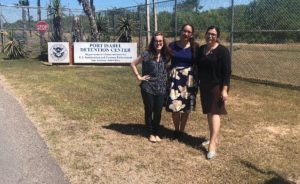
It is evident that CARECEN and its staff recognize that the migrant caravan is part of a bigger problem and has been working on problem solving. For example, in addition to providing legal assessment at the border, Ortiz attended a conversation at UNAM with the amazing Monica Ramirez about the United Nations Global Compact on Safe, Orderly, and Regular Migration and rights of migrant women. More recently, CARECEN organized a 20-person delegation from the United States to serve as legal observers in the February 2019 presidential elections in El Salvador to gain a deeper understanding about the factors that displace people from their homes.
“Did you know: The number of international migrants worldwide reached 258 million in 2017, up from 248 million in 2015, 220 million in 2010, 191 million in 2005 and 173 million in 2000? Most migrants move within the ‘global south’ rather than ‘invading northern countries,’” stated Ortiz, quoting the United Nations Migration Report of 2017.
We admire the work of CARECEN and hope that leaders like them will allow for the conversation about the migrant caravan to include a more comprehensive view of the deep-seated issues that led for its formation.
